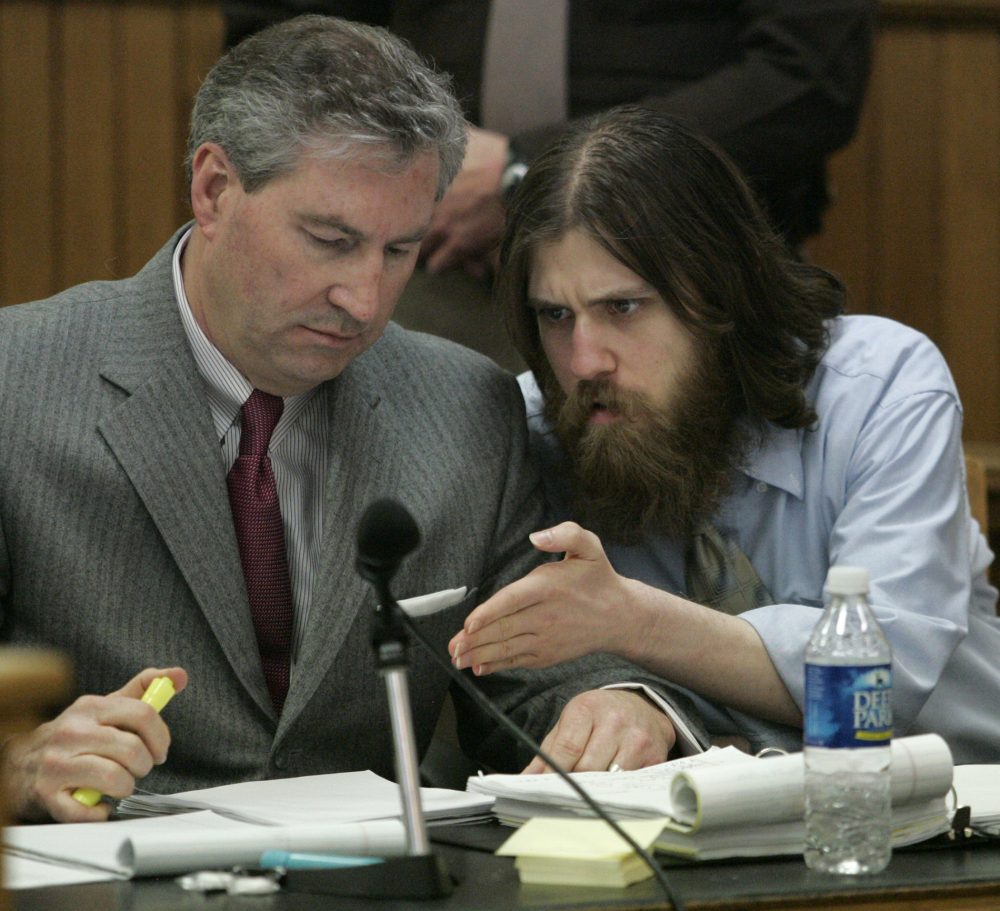Advertisement
Commentary
The Death Penalty And Mercy: Dear Governors, Can You Spare A Pardon?

Editor's Note: William Morva was pronounced dead at 9:15 p.m. Thursday after he was injected with a lethal combination of drugs.
William Morva is scheduled to be executed by the state of Virginia at 9 p.m. Thursday. He would become the 14th person to be executed this year and the 1,456th person put to death since 1976, when the United States resumed using capital punishment.
Virginia Gov. Terry McAuliffe turned down Morva's request for clemency Thursday afternoon. Morva asked for mercy because he suffers from serious mental illness, and because the jury that sentenced him was not correctly informed about his condition. McAuliffe received pleas to spare Morva's life from the daughter of one of his victims, from 18 Virginia state legislators and from the United Nations.
McAuliffe said he believed Morva had received a fair trial, and that mental health professionals testified that they didn't believe his mental illness prevented him from understanding his crimes.
McAuliffe's decision is another indication that the well-established power of governors to spare life is in danger of withering from lack of use. I've studied the history of clemency in capital cases from 1900 to the present. At the start of the 20th century, my research shows, governors regularly used this power in capital cases. In some cases, governors stayed executions because they had moral objections to capital punishment; in others, they believed condemned prisoners had been rehabilitated while on death row; or they wanted to remedy some injustice that had not been recognized or addressed by the courts.
Indeed, by the middle of the century, as many as 1 in 5 death row inmates received a commutation or a pardon.
Yet all this changed with the dawn of the “law and order/ tough on crime era” in the late 1960s and early 1970s. Since 1976, governors have granted clemency in 282 death cases. But that number hides the actual infrequency of clemency. Most of those 282 cases — 171 — came from a single decision, by Illinois Gov. George Ryan, in 2003. He granted clemency to everyone on that state’s death row, as he questioned the fairness of the capital punishment system.
Not only has there been a decline in the use of clemency in capital cases, but, with few exceptions, governors now use that power only when there is evidence that a death row inmate has been falsely convicted or the sentencing process was demonstrably flawed.

As a result, they are reluctant to spare the lives of people like Morva. He was sentenced to death for murdering two people in 2006 during an attempt to escape after he had been jailed for attempted robbery. While there, he showed many symptoms of mental illness, including paranoia and detachment from reality. When he committed the murders, he was suffering from a delusional disorder which led him to believe that his life was in danger. He told his mother in a phone call just before his escape attempt, “Someone wants me to die.”
Like McAuliffe, neither the jury in his trial nor the court which heard his appeal believed that he suffered from a “true mental illness.” However, even if they had, it is unlikely that they would have spared Morva’s life.
In capital trials, evidence of mental illness is frequently introduced by the defense to persuade juries not to hand down a death sentence. However, jurors often know little about mental illness and do not fully understand its links to criminal behavior. Widespread misperceptions about mental illness mean that the mentally ill murderer is often seen as uncontrollable, potentially dangerous and, because of his illness, likely to be violent in the future. The result is that a disproportionate number of mentally ill murderers end up on death row.
Writing about clemency almost 200 years ago, the U.S. Supreme Court described it as “an act of grace, proceeding from the power entrusted with the execution of the laws.”
... With few exceptions, governors now use that power only when there is evidence that a death row inmate has been falsely convicted or the sentencing process was demonstrably flawed.
Governors don’t see it that way. As George W. Bush outlined his view of the clemency power when he was governor of Texas, “In every case, I would ask: Is there any doubt about this individual’s guilt or innocence? And, have the courts had ample opportunity to review all the legal issues in this case?”
McAuliffe has embraced Bush’s view. He commuted a death sentence to life imprisonment only once, earlier this year, because jurors heard false information in the sentencing phase of the trial.
McAuliffe says he is morally opposed to the death penalty, but that he must enforce the laws of his state, even if he disagrees with them.
McAuliffe’s excuse rings hollow. In Virginia, as elsewhere, the death penalty is never mandatory, and a governor may stop an execution any time he believes it is right to do so. As the Florida State Supreme Court once wrote, “An executive may grant a pardon for good reasons or bad, or for any reason at all, and his act is final and irrevocable.”
Those in whom the clemency power is lodged must exercise their own moral judgment in deciding whether and when to spare life. The citizens of Virginia and of the United States are entitled to that exercise of judgment.
And, they are entitled to ask whether we are better off when someone as ill as William Morva is put to death.
I think that the answer is clearly no. Mentally ill killers deserve mercy, not death.
And all of us deserve to live in a society in which mercy does not disappear in cases where lives are on the line.
This article was originally published on July 06, 2017.
